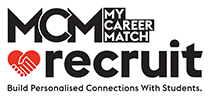The traditional resume has been the go-to for job hunters for decades, but in today’s digital world, its relevance is up for debate. Employers who grew up with social media are looking for something more than a sheet of paper. They want to see who you are and what you can do, not just read about it. So, with the rise of online profiles and platforms, is the classic resume becoming a thing of the past?
For starters, LinkedIn has transformed the way professionals present themselves. It’s like a resume that never sleeps – always on, always networking. It gives a fuller picture, showing your connections, recommendations, and even articles you’ve written or projects you’ve contributed to. This real-time profile is far more telling than any static resume could ever be.
In creative fields, your work speaks for itself, literally. Websites like Behance and Dribbble showcase your designs directly to those who might want to hire you, bypassing the need for a traditional resume. Writers and commentators are finding that published pieces on platforms like Medium serve as better samples of their work than a list of past job titles. Techo’s, too, are finding the traditional resume less useful. Your code on GitHub or contributions to discussions on Stack Overflow are the real testament to your skills, not a bulleted list on a document.
Now, does this mean the resume is dead? Not quite. It’s still around, especially in digital form. It’s just not the showstopper it used to be. Think of it as an opening act, not the main event. It might get you noticed, but your online presence is what keeps an employer’s attention.
For many this comes as no surprise. A candidate’s online presence – their personal brand – offers insights that a resume alone can’t. Employers can gauge a person’s professional ethos, their engagement with industry trends, and even get a sense of their personality. For the new wave of employers, a candidate’s online presence offers a deeper, more holistic view of their potential. It transcends the limitations of the paper resume, fostering a space where skills, personality, and cultural fit are as visible as employment history.
While the resume isn’t extinct, it’s definitely losing ground to dynamic digital profiles as we witness its reinvention. It’s no longer the sole star of the show but rather a piece of a bigger personal branding puzzle. After all, in the digital age, your next job might just find you
Career Advisers take note: Have your high school students start building their online resume now. Two things will happen. They’ll be more engaged in the resume building process, excited by all the tools they can use and, once done, they’ll be proud of what they’ve achieved. The process builds confidence and students get to explore their future self and aspirations, something a paper resume can never do.

